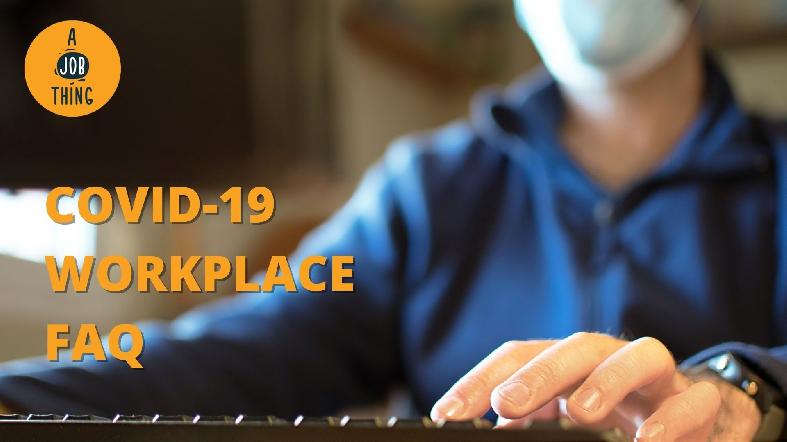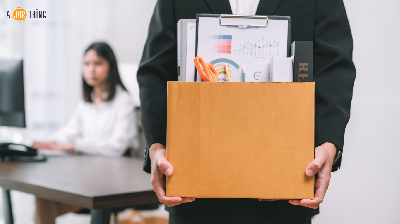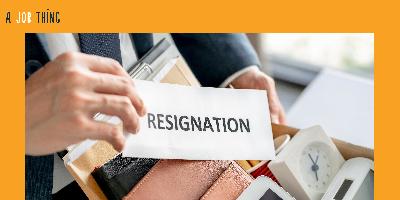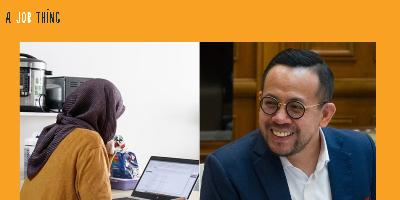
12 FAQs Regarding Employees, Workplace and COVID-19
Create Job Description Using AI
Write appealing job descriptions for any job opening to attract the most qualifield and suitable candidates. FOR FREE.
try now
As an employer, it cannot be easy to navigate your company through this pandemic that is still a threat even a year later. Many employers and Human Resources staff have asked these questions, and these are the answers provided by the Ministry of Human Resources.
1. What should an employer do if an employee is suspected or has tested positive of COVID-19?
The employer should instruct all employees who work closely with the employee to quarantine at home for 14 days to ensure that it does not spread. Before that, the employer should ask the employee to identify all individuals who worked closely (three to six feet) within 14 days before being suspected of COVID-19.
This way, the employer will have a complete list of those who may be infected. Employers need to maintain confidentiality without revealing the employee's information. Also, employers need to carry out the disinfection process in affected workplaces and workspaces.
If the workplace is in a shared building or office, the employer must inform the building management to take appropriate precautions.
2. What should the employer do if the employee reports that they have had close contact with someone who tested positive for COVID-19?
The employer needs to take the same precautions as described above. Treat the situation as if the suspected case was a positive one. Inform other employees that standard precautions are taken in its entirety.
3. Can the employer order an employee to stay home or leave the workplace if they show COVID-19 or flu symptoms?
Yes, the employer can ask the employee to immediately undergo a medical examination, including the COVID-19 test from a registered medical practitioner or medical officer at the employer's expense, as specified under section 60F of the Employment Act 1955.
4. If one of the employee's family members is confirmed positive for COVID-19 and the other family members are quarantined, does the employer have to pay the quarantined employee?
Employers must pay salaries to employees who have been given a Quarantine Order by the Health Authorities.
5. Is it possible to deduct Annual Leave for employees who need to "self-quarantine"?
Employers can only ask employees to undergo a medical examination. If given a quarantine order, employers can deduct the employee's sick/hospitalisation leave. If there is no quarantine order, and the employee is asked to self-quarantine, the employer cannot force the employee to take annual leave, as the annual leave must be at the employee's own will and request.
.jpg)
According to MOH, 25% of people tested positive on the 13th day after close contact with a COVID-19 positive person.
6. In a situation where COVID-19 pandemic becomes worse, can employers give unpaid leave to employees because the company is also slightly affected by it?
Employers cannot order the employees to take unpaid leave unless the employees agree to it.
7. If one of the employees is confirmed positive for COVID-19, can the employer give all employees unpaid leave?
Employers may provide leave to other employees to maintain their safety and health, for which such leave must be paid. They cannot cut the employee's salary. Employers also cannot force employees to take unpaid leave.
8. If one of the employee's family members is confirmed positive for COVID-19 and other family members are quarantined, does the employer need to pay salary to the quarantined employee?
Employers must pay salaries to employees who have been given a Quarantine Order by Health Authorities.
9. Can an employee refuse to work out of fear?
Employees only have the right to refuse to work if they believe they are in imminent danger.
Section 14 (3) of the Employment Act 1955 provides: "an employee may terminate his contract of service with his employer without notice where he or his dependants are immediately threatened by danger to the person by violence or disease such as such employee did not by his contract of service undertake to run".
The employer must determine if this situation exists in the workplace before deciding whether it is permissible for the employee to refuse to work.
10. The employee has been given an Observation and Surveillance Order under Section 15 (1) of the Prevention and Control of Infectious Diseases Act 1988 [Act 342] by the Health Authorities for 14 days. Does the employee need to attend work?
If an employee is given an Observation and Surveillance Order under Section 15 (1) of the Prevention and Control of Infectious Diseases Act 1988 [Act 342] by the Health Authorities, the employee is allowed to be absent from work.
11. If an employee is ordered to quarantine, should the employer count the employee's absence as medical leave?
- If the employee is quarantined under the Ministry of Health, the employer should consider it as Hospitalisation Leave.
- If the employee is quarantined in the context of partner or spouse, they can be asked to work from home. If they're unable to work from home, then the employee can choose to take Annual Leave.
12. How does one decide if an employee should be treated at the hospital or quarantine at home? What if an employee had close contact with someone who tested positive for COVID-19?
You may refer to this infographic, click on the image to see the larger version:
Bonus Questions
13. What happens after the employee finishes 14 days of quarantine? Can they return to work?
According to the Ministry of Health, the employee will undergo a swab test on the 13th day of quarantine. If the result is negative, they will be given the release order on the 14th day of observation and surveillance.
Source: MOHR
NEW and latest Covid-19 SOPs, info and guidelines from the Government >> DOWNLOAD HERE
Articles that might interest you
MCO 2.0: Who Can Go To Work?
State of Emergency: How It Affects Us All
Employers Are Hiding Their Employees' COVID-19 Positive Results
Employers Must Cover Vaccination Costs for Foreign Workers

.png)




